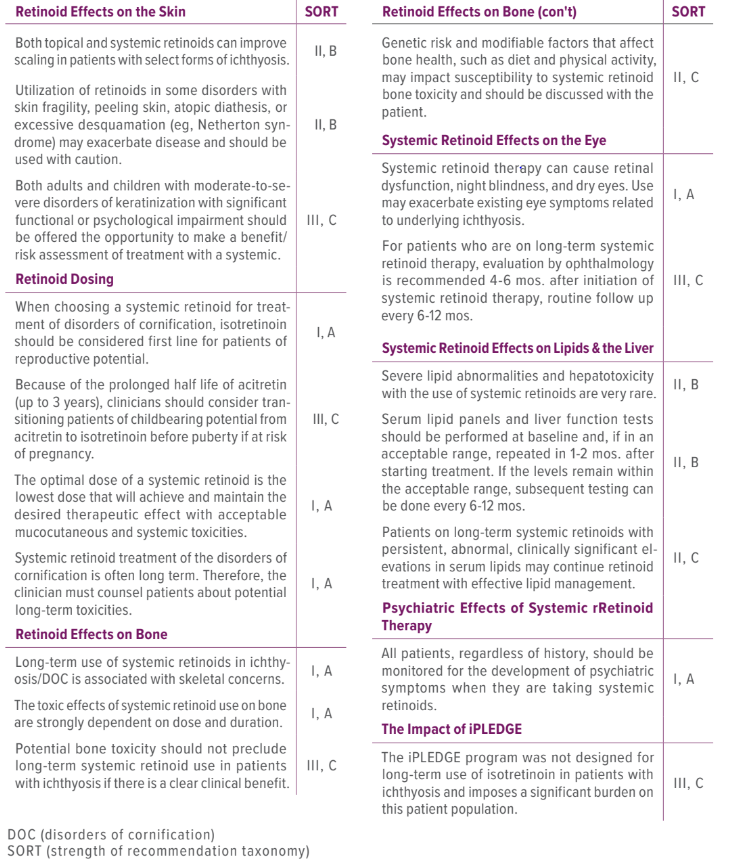Creating Guidelines for Retinoid Treatment for Ichthyosis
Published January 2022 | Journal of the American Academy of Dermatology
Ichthyosis disorders are genetic disorders of the skin that can be painful and require long-term treatment to keep symptoms at bay. Retinoids, both topical and systemic, have been a common treatment for these conditions, but their use for different types of ichthyosis and recommended dosage had not previously been codified in guidelines.
These guidelines are especially crucial for treating children, who will likely be using these types of treatments over a long period, according to research conducted by Anne Lucky, MD, medical director, Epidermolysis Bullosa Center, and her colleagues, who developed consensus guidelines for the use of retinoids to treat these conditions.
Lucky and colleagues from more than a dozen research institutions formed the Pediatric Dermatology Research Alliance (PeDRA) Use of Retinoids in Ichthyosis Work Group. Experts from the group come from pediatric dermatology, general dermatology, pediatric cardiology, obstetrics-gynecology, bone development and ophthalmology.
Specifically, the working group evaluated the numerous clinical concerns around long-term retinoid use, including:
- Side effects impacting the bones and eyes
- Psychiatric effects
- Cardiovascular effects
- Contraceptive concerns
- Drug effects between hormonal birth control and longterm retinoid use
“Currently, there are no guidelines for which types of ichthyosis to treat with retinoids and at what doses,” Lucky says. “This working group was a good example of collaboration between investigators and experienced clinicians at different institutions to help fill that unmet need.”





